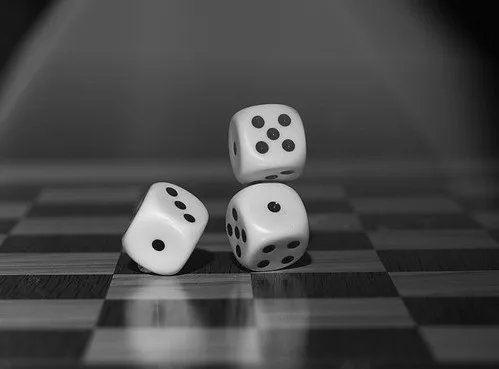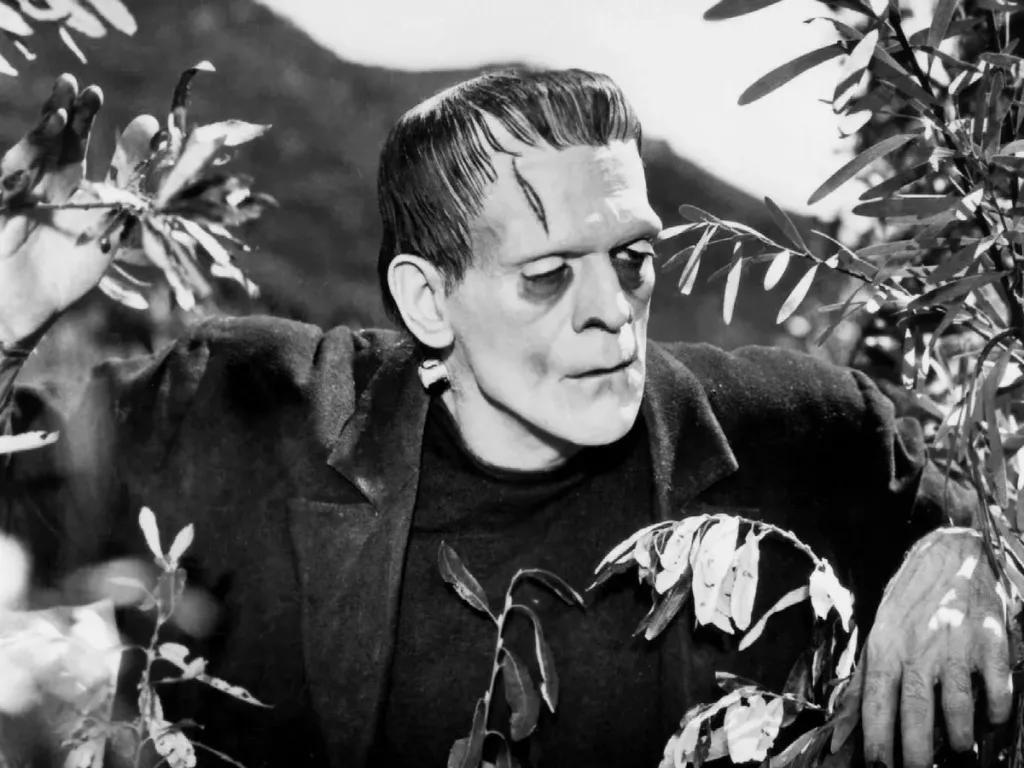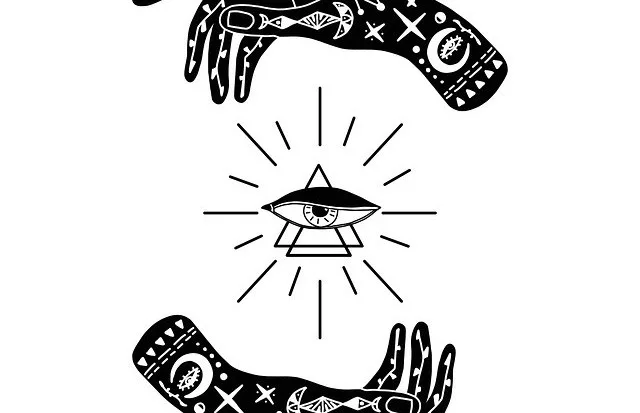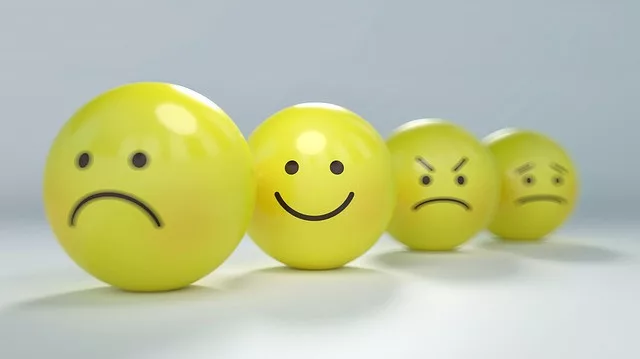Dreams offer us valuable insights into a person’s state of mind, encompassing their beliefs, concerns, and worries at a given moment. However, do dreams serve a greater purpose? According to science, people only remember about 5% of their dreams each night, despite spending a significant amount of time dreaming every night. Can dreams predict your future? and if they can, is there a way to benefit from them?
In this post, I will share with you all the information I have gathered from spirituality’s perspective to scientific view points about this interesting topic. So, let’s get started!

Can dreams predict your future?
What are precognitive dreams?
Precognitive dreams, also known as precognitive or prophetic dreams, are dreams that seem to provide information about future events or situations. They are characterized by the dreamer experiencing details or events in their dream that later come true in waking life.
In a precognitive dream, the dreamer may see specific events, people, locations, or even symbols that later manifest in reality. These dreams can vary in intensity and clarity, ranging from vague impressions or feelings about the future to highly detailed and accurate depictions of upcoming events.
It is important to note that precognitive dreams are considered to be a form of extrasensory perception (ESP) and fall into the category of paranormal phenomena.

The scientific community remains divided on the existence and interpretation of such phenomena.
Explanations of precognitive dreams
The subconscoius mind ‘s ability to process information beyond our subconscious mind
The theory that precognitive dreams are a result of the subconscious mind‘s ability to process information and make connections is based on the idea that our minds are constantly absorbing and processing vast amounts of information, much of which goes unnoticed by our conscious awareness.
This idea says that even if our conscious mind doesn’t immediately comprehend a set of certain information, our subconscious mind can pick up faster on patterns, connections, and possible future results.
When we dream, our subconscious mind may present us with symbolic or metaphorical representations of this processed information, including potential future events.
Some people believe that these dreams these dreams can be a means for our subconscious mind to share its insights with our conscious understanding.

For example, let’s say you have just participated in an interview for a new job.
During your interview, your subconscious mind has gathered information about certain environmental cues, such as the behavior and facial expressions of the interviewers, your past experiences with other job interviews, and the competitiveness of your profile. It might predict a high chance of you getting the job offer.
Although your conscious mind may not have consciously processed or connected these cues, your subconscious mind could pick up on the signals and incorporate them into a dream.
The dream might present you getting the job, or you sitting in your new office, interacting with colleagues, or receiving recognition and rewards.

In this context, the dream acts as a way for the subconscious mind to communicate its understanding of the situation to the conscious mind, providing a glimpse into a potential future outcome. The dreamer may not be consciously aware of the upcoming events until it actually happens, but the dream serves as an intuitive hint or a symbolic representation of what is to come.
Collective Unconscious
Proposed by Swiss psychiatrist Carl Jung, the concept of the collective unconscious suggests that there are shared archetypes, symbols, and knowledge that are embedded in the collective human experience.
He believed that the collective unconscious is inherited and exists in addition to an individual’s personal unconscious. It is a reservoir of experiences and memories that are common to all human beings, regardless of culture or individual differences.
And we can access this collective unconscious to have information about our futures through our dreams.
Archetypes are the fundamental structures within the collective unconscious. They represent universal patterns, themes, and symbols that manifest in myths, fairy tales, religious symbols, and dreams across different cultures and time periods.
Examples of archetypes include the Hero, the Mother, the Trickster, and the Wise Old Man. These archetypes reflect basic human experiences, emotions, and motivations that are shared by all individuals.

Symbols are another important aspect of the collective unconscious. Symbols are images, objects, or concepts that carry deeper meaning and evoke certain emotions or associations.
They can be found in art, literature, religion, and dreams. Jung believed that symbols in dreams and other forms of expression are expressions of the collective unconscious, serving as a bridge between the conscious and unconscious realms.

Jung proposed that each person can access the collective unconscious through dreams, artistic creations, religious experiences, and moments of deep insight.
By exploring and integrating the symbols and archetypes within the collective unconscious, a person can gain a deeper understanding of themselves, their relationships, and the larger human experience.
Our Body indicators of impending illness or mental deterioration
According to research, there is evidence to suggest that specific types of dreams could potentially serve as indicators of impending illness or mental deterioration.
For instance, in individuals with Parkinson’s disease, dreams characterized by negative emotions have been found to be associated with future cognitive decline. This correlation has been supported by studies conducted by the National Center for Biotechnology Information.

Parkinson’s disease is a neurodegenerative disorder that affects movement and cognitive function. It is characterized by the loss of dopamine-producing cells in the brain.
Studies have found that individuals with Parkinson’s disease who experience dreams with negative emotions, such as fear, anger, or sadness, are more likely to exhibit cognitive decline in the future.
The underlying mechanisms behind this correlation are not yet fully understood. However, one hypothesis suggests that the presence of negative emotions in dreams may reflect changes in brain function and neurotransmitter activity associated with the progression of Parkinson’s disease. These changes may impact cognitive processes and contribute to future cognitive decline.
Retrocausality
This explanation suggests that time is not strictly linear, and events in the future can influence the past or present.
According to this theory, precognitive dreams could be a glimpse into this non-linear aspect of time, where information about future events can somehow reach our dreaming mind.
Coincidence
Some argue that precognitive dreams are simply coincidences.
With the vast number of dreams we have throughout our lives, it is statistically probable that some of them will align with future events purely by chance.
In such cases, it may seem like a precognitive dream, but it is merely a random occurrence.

How common can dreams predict your future?
According to certain research findings, a significant proportion of individuals, possibly up to one-third, have reported experiencing precognitive phenomena, with dreams being a common form of such experiences. These individuals claim to have had dreams that appeared to accurately foreshadow future events.
One notable study in this area was conducted by Dr. Dean Radin and published in the Journal of Scientific Exploration in 2011.
The study involved an online survey where participants were asked to report any dreams they had that seemed to predict future events. The participants were also asked to provide details of the dream, the event it seemed to predict, and any evidence they had to support the prediction.
The study found that out of the thousands of dreams reported, there is a small percentage seemed to be precognitive in nature.
Here’s a short clip about the phenomenon of precognitive dreams:
Example of dreams predict the future
Abraham Lincoln’s Assassination
The details of the dream are derived from accounts provided by Lincoln himself, as well as from those who knew him well.
The dream took place shortly before Lincoln’s assassination on April 14, 1865. According to various sources, including Lincoln’s friend and bodyguard, Ward Hill Lamon, and Mary Todd Lincoln, the president’s wife, the dream occurred approximately ten days before his death. It is important to note that while the dream has been widely reported, there are some variations in the details across different accounts.
In the dream, Lincoln saw himself walking through the White House corridors, filled with an eerie silence. As he continued to explore, he heard mournful sounds emanating from a specific room.
Upon entering the room, Lincoln encountered a funeral setting, with a casket surrounded by grieving individuals. When Lincoln asked one of the mourners about the identity of the deceased, he received the response, “The President of the United States.”
Lincoln awoke from the dream feeling unsettled and deeply disturbed. He shared the dream with his wife, Mary Todd Lincoln, as well as with some close associates. The dream was interpreted by some as a foreboding sign of Lincoln’s impending death, and it has since become a subject of fascination and speculation.
Mark Twain ‘s precognitive dreams
Mark Twain, the pen name of Samuel Clemens, was indeed known to have experienced what he believed to be precognitive dreams throughout his life. Twain, celebrated for his literary works such as “The Adventures of Tom Sawyer” and “Adventures of Huckleberry Finn,” often shared his experiences with dreams and their uncanny connection to events in his life.

One particularly famous incident involving Twain’s purported precognitive dream revolves around the death of his younger brother, Henry Clemens. According to Twain’s own account, he had a vivid dream in which he saw his brother lying in a metallic casket. The dream left a profound impact on Twain due to its unsettling nature and the clarity with which he remembered it.
Shortly after the dream, Twain received news of his brother’s sudden demise, and he discovered that Henry had indeed been laid to rest in a metallic casket, just as Twain had seen in his dream. This experience left Twain deeply affected, and he became fascinated by the idea that dreams could potentially offer glimpses into future events.
Twain’s belief in the prophetic nature of dreams extended beyond this particular incident. He claimed to have had other dreams that seemed to foreshadow future occurrences, though specific details and examples are not as widely documented.
Mary Shelley ‘s inspiration to write “Frankenstein”
Mary Shelley’s claim about dreaming the storyline of her famous novel, “Frankenstein” is a widely known and celebrated anecdote. It is believed that the dream she had served as a significant source of inspiration for the creation of the novel.
According to Shelley’s own accounts, the idea for “Frankenstein” came to her in a vivid dream while she was staying at Lake Geneva in Switzerland in the summer of 1816.
During this period, Shelley, along with her husband Percy Bysshe Shelley and their friend Lord Byron, engaged in discussions about science, life, and the nature of existence.

In Shelley’s dream, she experienced a vivid and haunting vision that would later form the core of “Frankenstein.”
She dreamt of a scientist who, driven by ambition and a desire for knowledge, succeeded in creating a living being through scientific means. This creation, however, turned out to be a grotesque and monstrous figure, rejected by its creator and society at large.
Shelley was deeply moved by the dream and found herself compelled to turn it into a written work. The dream provided her with the foundation for the novel’s themes of creation, ambition, the consequences of scientific pursuit, and the human longing for acceptance and belonging.
Following her dream, Mary Shelley worked diligently to develop the story and bring it to life on the pages of “Frankenstein.”
The novel was published anonymously in 1818 and has since become a seminal work of Gothic literature, exploring moral and ethical dilemmas surrounding scientific advancement and the responsibilities of creators towards their creations.
The topic of “Can dreams predict your future?” is indeed a fascinating and highly debated subject. While there is no definitive scientific evidence to support the notion that dreams can accurately foresee specific future events, many individuals, including myself, have reported experiencing instances of déjà vu that seem to connect to their dreams.
Déjà vu is a phenomenon characterized by a strong feeling of familiarity or the sense that a current experience has been previously encountered, even though it may not have occurred in reality. Some people interpret these experiences as evidence of precognitive dreams, where the dream seemingly predicted the present moment.
Personal anecdotes of déjà vu and precognitive dreams vary widely, and interpretations differ based on individual beliefs and experiences.
I would love to hear your opinions and personal experiences relating to this topic.







This is a very interesting and worthwhile topic for an article Lily, I am glad that you wrote it and every happier that I took the time to read it! I wholeheartedly agree with your opening statement that dreams can give us a glimpse into a person’s state of mind, interests, personal beliefs and the things that worry them. There are also many cases in the Bible where God spoke to people in or through a dream so I certainly wouldn’t discount the fact that we could learn a great number of things from our dreams.
I would be careful to point out though that not every thing we dream is intended to give us guidance or in some cases is able to teach us anything at all. I have had a number of dreams over the yrs that were somewhat disturbing and if I’d thought that those dreams were pointing to my future I would have had no peace at all. I would also point out that God is not the author of confusion so anything we thing He may be telling us in a dream should be tested against the whole of Scripture.
That’s a very good point from you.
I believe that dreams do reflect somewhat our states of mind. So, if we are in a bit of chaos or depression, we might experience dreams that are not pleasant.
In my opinion, dreams might give us guidance in some cases if we feel resonated with them. I don’t say that all dreams are like that, but once in a while, you will know it when you see it.
Thanks again for visiting my blog and leaving your thoughts here!